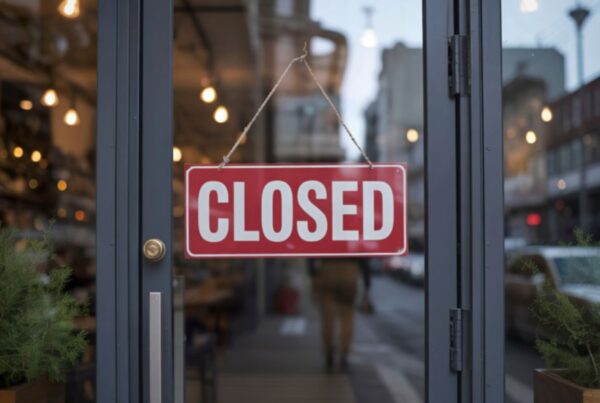Filing an appeal in Florida isn’t just about disagreeing with a trial court’s decision, it’s a technical, strategic legal process that demands precision. And unfortunately, many appeals are lost before they even begin, not because the legal arguments are weak, but because of avoidable procedural mistakes.
Whether you’re a business owner, property investor, or individual litigant thinking about appealing a court decision, knowing these pitfalls can save you time, money, and a potential loss.
What Can Go Wrong Before an Appeal Even Begins?
The appellate process isn’t just about right or wrong, it’s also about following rules and deadlines to the letter. Here’s where things often go off track.
1. Missing the Deadline to File a Notice of Appeal
How long do I have to file an appeal in Florida?
The most common, and most unforgiving, mistake is missing the deadline to file your Notice of Appeal. In most Florida civil cases, you have 30 days from the date the final judgment is rendered.
This deadline is strict, there are no extensions. If you miss it, your right to appeal is gone. No matter how strong your argument might be, the court won’t hear it.
2. Appealing a Non-Final or Non-Appealable Order
Can I appeal a court order that isn’t final?
Not every court order can be appealed. Many litigants try to challenge decisions that are not final judgments or don’t qualify for immediate appeal under Florida law. This leads to wasted effort and, often, a dismissal.
Understanding what is appealable and what isn’t requires knowledge of Florida’s appellate rules. Appealing the wrong type of order can delay your case and damage your credibility with the court.
3. Failing to Preserve Issues for Appeal at Trial
What does it mean to preserve an issue for appeal?
One of the most technical mistakes is failing to preserve the issue during the trial. This means your trial attorney didn’t object, argue, or raise the specific issue on the record at the right time.
Appeals are not a do-over. If you didn’t raise the issue at trial, the appellate court may rule that you waived your right to challenge it later—even if it was a clear legal error.
This is why appeals often fail before they even begin, the groundwork wasn’t laid during trial.
4. Not Hiring an Attorney with Appellate Experience
Do I need a different lawyer for an appeal?
Trial law and appellate law are two very different disciplines. A great trial attorney isn’t necessarily a great appellate lawyer.
Appeals focus on the written record, legal arguments, and precise interpretation of the law, not on new evidence or witness credibility. If your lawyer isn’t deeply familiar with Florida’s appellate procedures, formatting rules, and briefing standards, they may inadvertently sabotage your case.
Hiring a law firm with proven appellate experience, like our firm, can make a substantial difference.
5. Poorly Drafted or Weak Initial Briefs
What goes in an appellate brief?
The Initial Brief is your first, and often only, opportunity to make your case to the appellate court. This document must be clear, persuasive, and based strictly on the trial record.
Common issues that tank appeals at this stage include:
- Citing evidence not in the record
- Misstating legal standards
- Failing to follow formatting rules
- Making emotional or unsupported arguments
In appellate courts, form matters as much as substance. Sloppy briefs signal weak advocacy, and that can be fatal to your case.
6. Appealing for the Wrong Reasons
Should I appeal just because I lost?
An appeal should not be used just to express frustration with a trial outcome. If you’re appealing simply because you’re unhappy, but can’t point to a clear legal error, the court will likely uphold the trial court’s decision.
Appellate courts are not there to retry cases or reevaluate facts, they’re there to determine whether the law was correctly applied. Filing an appeal without a solid legal basis is a fast track to dismissal, and wasted money.
7. Failing to Understand the Standard of Review
What is the appellate court actually reviewing?
Every issue on appeal is reviewed under a specific legal standard, such as:
- De novo (fresh review)
- Clearly erroneous
If your lawyer doesn’t frame your arguments according to the correct standard, your appeal may fail even if the issue is valid.
Knowing how to tailor each argument to the applicable standard is part of what separates strong appellate briefs from weak ones.
How to Avoid These Appeal-Killing Mistakes
If you’re thinking about appealing a case, or defending an appeal, you need to:
-
- Act fast (appeal deadlines are strict)
- Know what can and can’t be appealed
- Understand the record and standards involved
- Avoid emotion-driven decisions
At Ayala Law, we’ve represented clients in both state and federal appeals. We’re meticulous about deadlines, records, and standards, and we’re realistic with our clients about whether an appeal is worth pursuing.
Considering an Appeal? Let’s Talk.
The earlier you get legal guidance, the better your chances of avoiding these common mistakes. Appeals are high-stakes and unforgiving, but with the right strategy, they can be won.
Whether you’re appealing a commercial judgment, a consumer case, or a real estate decision, contact an experienced attorney in Miami at 305-570-2208.
You can also contact trial attorney Eduardo A. Maura at eduardo@ayalalawpa.com.
Schedule a case evaluation online here.
[The opinions in this blog are not intended to be legal advice. You should consult with an attorney about the particulars of your case].
Subscribe to Our Blog
Stay informed with our latest blog posts delivered directly to your inbox. Gain valuable legal insights, tips, and advice from our seasoned attorneys.








